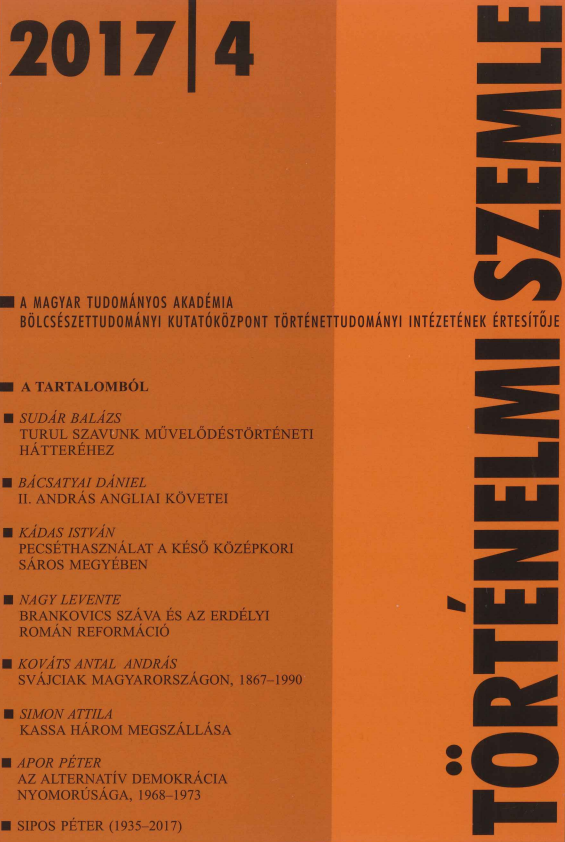Turul szavunk művelődéstörténeti hátteréhez
On the Cultural Historical Background of the Hungarian Word Turul
Author(s): Balázs SudárSubject(s): Lexis, Semantics, Finno-Ugrian studies, Cultural Anthropology / Ethnology, 13th to 14th Centuries, 19th Century, Turkic languages
Published by: Magyar Tudományos Akadémia Bölcsészettudományi Kutatóközpont Történettudományi Intézet
Keywords: turul; language; Hungarian word; cultural historical background;
Summary/Abstract: According to the chronicle of Simon Kézai (written in the 1280s), the turul was the emblem of pagan Hungarian rulers. Yet the word did not become part of the Hungarian language; it was rediscovered in the 19th century only. It clearly originated from one of the Turkish languages. Since it is not used by the Turkish languages either, and it hardly occurs in historical texts, with the exception of the earliest Muslim manuals of falconry, it very probably belongs to the early Uyghur-Oghuz world, and thus to a minor, clearly distinguishable section of the Turks.
Journal: Történelmi Szemle
- Issue Year: 2017
- Issue No: 04
- Page Range: 605-619
- Page Count: 15
- Language: Hungarian

